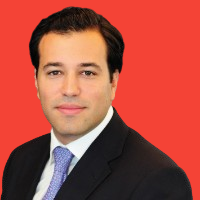About this trust
This investment trust aims to provides long-term capital growth and income by investing in a diversified portfolio of UK-listed equities. It offers exposure to various sectors and companies with potential for growth and increasing dividends. Ideal for investors seeking steady, growing income and capital appreciation, especially for retirement planning.
Capital at risk. The value of investments and the income from them can fall as well as rise and are not guaranteed. Investors may not get back the amount originally invested.
There is no guarantee that a positive investment outcome will be achieved.
There is no guarantee that research capabilities will contribute to a positive investment outcome.
The Trust is governed by an elected Board of Directors
There is no guarantee that a positive investment outcome will be achieved.
The annual report gives investors a clear overview of the company's financial performance, including detailed revenue and profit analyses. It features the Chairman's statement, providing insights into the company's direction, and the Portfolio Manager's report, which details investment strategies and portfolio performance.

The half-year report updates investors on the company's financial performance, including key revenue and profit metrics. It includes a brief statement from the Chairman, offering insights into the company's progress and strategic direction for the first six months. Additionally, the Portfolio Manager's summary highlights investment strategies.

The factsheet provides an overview of the company's objective and strategy, including a monthly update of the company's performance. It highlights the portfolio's sector allocation and top 10 holdings, along with the portfolio managers' monthly commentary.
Useful information
Capital at risk. The value of investments and the income from them can fall as well as rise and are not guaranteed. Investors may not get back the amount originally invested.
Fees & Charges
Annual Expenses as at date: 31/10/2025
Ongoing Charge: 1.15%
Management Fee Summary: Management fee is 0.6% p.a. of the Company's market capitalisation. There is no additional fee for Company Secretarial and administration services.
With effect from 1 November 2023, the Company’s Manager agreed to cap ongoing charges by rebating a portion of the management fee to the extent that the Company’s ongoing charges exceed 1.15% of average net assets.
-
ISIN: GB0030961691
Sedol: 3096169
Bloomberg: BRIG LN
Reuters: BRIG
LSE code: BRIG.L
-
Name of Company: BlackRock Fund Managers Limited
Telephone: 020 7743 3000
Email: cosec@blackrock.com
Website: www.blackrock.com/uk
Correspondence Address: Investor Services,
BlackRock Investment Management (UK) Limited
12 Throgmorton Avenue
London
EC2N 2DL
Name of Registrar: Computershare PLC
Registered Office: 12 Throgmorton Avenue
London
EC2N 2DL
Registrar Telephone: +44 (0)370 703 0076
Place of Registration: England
Registered Number: 4223927
-
Year End: October
Results Announced: December (annual), June (interim)
AGM: March
Dividends Paid: March (final), September (interim)
Annual General Meeting
On 6 March 2025 Portfolio Manager, David Goldman provided an update on the Company’s progress and the year ahead.
Capital at risk. The value of investments and the income from them can fall as well as rise and are not guaranteed. Investors may not get back the amount originally invested.
This material is not intended to be relied upon as a forecast, research or investment advice, and is not a recommendation, offer or solicitation to buy or sell any securities or financial product or to adopt any investment strategy. The opinions expressed are as of March 2025 and may change as subsequent conditions vary.
ESG Integration
The fund noted above does not commit to sustainable criteria nor does it have a sustainable investment objective.
BlackRock considers many investment risks in our processes. In order to seek the best risk-adjusted returns for our clients, we manage material risks and opportunities that could impact portfolios, including financially material Environmental, Social and/or Governance (ESG) data or information, where available. See our Firm Wide ESG Integration Statement for more information on this approach and fund documentation for how these material risks are considered within this product, where applicable.
Latest company announcements
Capital at risk. The value of investments and the income from them can fall as well as rise and are not guaranteed. Investors may not get back the amount originally invested.
Filter by type:
Filter by date period:
Sign up for Regulatory News Service alerts
To receive email alert notifications once an update to the Trust occurs, please sign up and select the updates you would like to receive via The Association of Investment Companies website here. Please be aware by clicking on this link you are leaving BlackRock and entering a third party’s website. As such, BlackRock is not liable for its content.
Portfolio manager biography
Capital at risk. The value of investments and the income from them can fall as well as rise and are not guaranteed. Investors may not get back the amount originally invested.
Adam Avigdori, Director, is co-manager of the BlackRock Income and Growth Investment Trust plc, and is a member of the UK Equity Team. Adam joined BlackRock in 2001 and is responsible for managing UK equity portfolios covering the real estate and construction sectors. Adam has a degree in management sciences.
David Goldman, CFA, Director, is co-manager of the BlackRock Income and Growth Investment Trust plc, and is a member of the UK Equity Team. David joined BlackRock in 2004 and is responsible for managing UK equity portfolios covering the support services sectors. David has a degree with first class honours in economics.
Board of directors
Graeme Proudfoot (Chairman) (appointed 1 November 2019) has considerable asset management experience and expertise having spent the bulk of his executive career at Invesco, latterly as Managing Director, EMEA and CEO of Invesco Pensions. Prior to joining Invesco, Mr Proudfoot began his career at Wilde Sapte Solicitors, practising as a corporate finance lawyer in London and New York. He is also a non executive Director of VPC Specialty Lending Investments plc.
Marcus Hine (appointed 16 September 2025) is a former partner at PricewaterhouseCoopers having retired in 2021. During his career he specialised in providing audit and related services to clients in the insurance and asset management industries and has audited and provided advice to Boards of many investment trust companies. He is a chartered accountant. Mr Hine is currently non executive director and chair of the Audit and Risk committees at Through Transport Mutual Association Limited and Barclays Investment Solutions Limited, non executive director at UK Mutual War Risks Association, and Chair of the Board of Trustees at Beyond Food Foundation, a registered charity. He is also an independent member and currently co chair of the Audit and Risk Committee at NHS Resolution.
Charles Worsley (appointed 19 April 2010) has over 30 years’ experience in commercial and residential property management and has been a shareholder of the Company since its launch. Mr Worsley has formerly been a director of retail and media companies. He is currently a director of a commercial property company, a renewable energy development company and a trustee director of a private family office.
Chrysoula Zervoudakis (appointed 19 December 2024) has worked for 28 years in asset management in the UK and France, investing in UK and Continental European Equities for retail and institutional clients. Most recently she was a director at AXA IM until 2015 and co-Head of Research. She has managed Growth and Income funds and analysed both industrial and consumer sectors with a focus on corporate governance and sustainability. She has been involved in promoting funds in the UK and internationally. She currently serves as non-executive director of OFI Invest AM in France where she chairs the Engagement and Ethics Committee and as Governor of West Thames College. She was previously a non‑exec director of Quadpack Industries SA and chair of the audit and risk committee.
Latest insights

What are the risks?
Counterparty Risk
The insolvency of any institutions providing services such as safekeeping of assets or acting as counterparty to derivatives or other instruments, may expose the Fund to financial loss.
Gearing Risk
Investment strategies, such as borrowing, used by the Trust can result in even larger losses suffered when the value of the underlying investments fall.
Liquidity Risk
The Fund's investments may have low liquidity which often causes the value of these investments to be less predictable. In extreme cases, the Fund may not be able to realise the investment at the latest market price or at a price considered fair.








